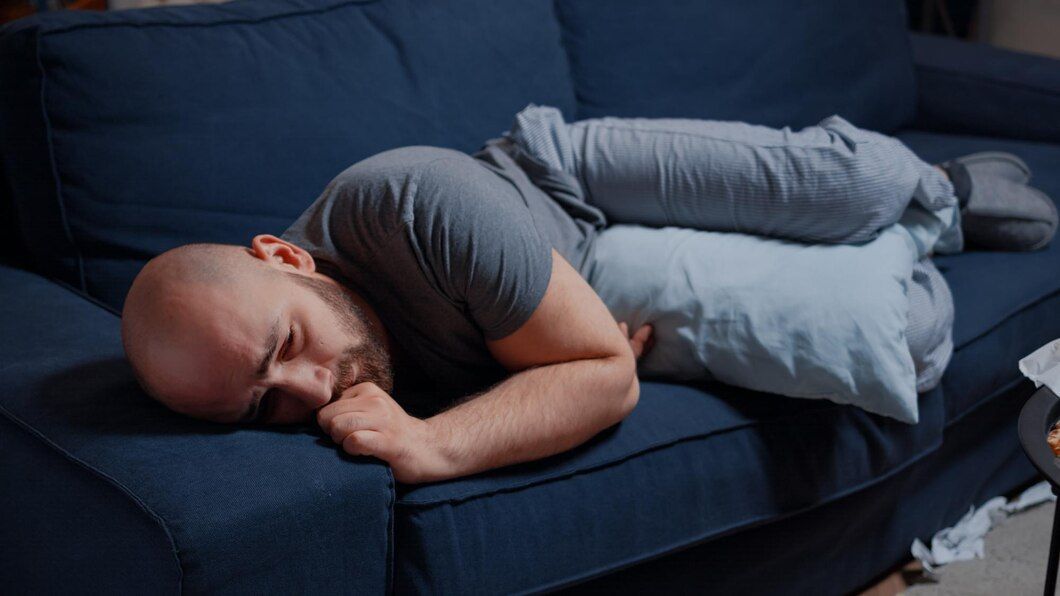Conquering Insomnia with Oral Appliance Therapy and Holistic Practices

Insomnia, a sleep disorder characterized by difficulty falling or staying asleep, impacts millions of people worldwide. The consequences of insomnia include daytime fatigue, irritability, and diminished cognitive abilities, adversely affecting overall health and well-being.
Though commonly associated with sleep apnea, insomnia is a separate sleep issue that often coexists with other sleep disorders like sleep apnea and TMJ disorders. Consequently, addressing sleep apnea with treatments like oral appliance therapy can also help alleviate insomnia symptoms.
In this illuminating blog article, we will delve into the potential benefits of utilizing oral appliance therapy for individuals with insomnia, particularly those who also experience obstructive sleep apnea or TMJ disorders. We will also explore how adopting holistic lifestyle practices can complement this innovative treatment, creating a well-rounded approach to combating insomnia symptoms.
At Pittsburgh Dental Sleep Medicine, our team of doctors is dedicated to providing personalized sleep solutions, empowering individuals to reclaim control of their sleep and overall health.
Take the first step towards improved sleep and a healthier lifestyle by scheduling an appointment with our doctor team at Pittsburgh Dental Sleep Medicine. We will work together to devise a comprehensive treatment plan catered to your unique needs, addressing insomnia symptoms through a combination of oral appliance therapy and holistic practices. Let us guide you towards a brighter, more revitalized future, free from the burdens of insomnia.
Oral Appliance Therapy: A Potential Aid for Insomnia Symptoms
One of the leading treatment options for sleep apnea is oral appliance therapy. This innovative, non-invasive solution involves using a custom-fitted oral device that repositions the jaw and tongue during sleep, maintaining an open airway and preventing sleep-disrupting events. While oral appliance therapy is primarily designed to treat sleep apnea, it can also prove beneficial for individuals who experience insomnia as a coexisting condition:
- Improved Sleep Quality: By minimizing sleep interruptions due to sleep apnea or snoring, oral appliance therapy contributes to more restful and restorative sleep.
- Reduced Pain and Discomfort: In cases where TMJ disorders coexist with insomnia, oral appliance therapy can alleviate jaw pain, making it easier for individuals to relax and fall asleep.
- Enhanced Breathing Stability: Oral appliance therapy can improve breathing stability during sleep, promoting more stable and higher-quality slumber.
Though not specifically intended for the sole treatment of insomnia, oral appliance therapy may offer substantial benefits to individuals who face sleep challenges stemming from sleep apnea or TMJ disorders.
Holistic Approaches to Alleviating Insomnia Symptoms
In addition to oral appliance therapy, adopting holistic lifestyle practices can complement conventional treatments to more effectively manage insomnia symptoms. Here are some essential strategies to implement:
- Sleep Hygiene: Maintaining consistent sleep routines, establishing a comfortable sleep environment, and minimizing pre-sleep exposure to screens can significantly enhance overall sleep quality.
- Stress Management: Engaging in relaxation techniques such as mindfulness, meditation, deep breathing, or yoga can reduce stress and make it easier to fall asleep.
- Diet and Exercise: Consuming a balanced diet, limiting caffeine and alcohol consumption, and engaging in regular physical activity can support healthier sleep patterns.
By incorporating these strategies alongside oral appliance therapy, individuals with insomnia can create a comprehensive approach to battling their sleep issues.
Assessing the Efficacy of Oral Appliance Therapy
Before considering oral appliance therapy as a potential solution for insomnia symptoms, it is critical to assess the underlying causes of individual sleep challenges. A consultation with a sleep doctor can provide valuable insights into whether sleep apnea or TMJ disorders play a contributory role in a person's insomnia. During the assessment, the sleep doctor will consider:
- Medical History: A thorough review of medical history, including medications and chronic conditions, can help identify potential contributing factors to insomnia symptoms.
- Sleep Patterns: An evaluation of current sleep routines, habits, and issues can provide context for determining whether oral appliance therapy might be a viable solution.
- Comprehensive Diagnosis: In some cases, a sleep study may be recommended to confirm or rule out a concurrent sleep disorder, such as sleep apnea or restless legs syndrome.
With the support of a professional sleep medicine team, patients can make informed decisions about whether to pursue oral appliance therapy as an approach to managing their insomnia symptoms.
Finding the Right Balance for Insomnia Treatment
Successful management of insomnia symptoms often requires a multifaceted approach that combines targeted treatments and lifestyle adjustments. Developing a personalized treatment plan that addresses the underlying factors contributing to insomnia can lead to lasting improvements in sleep quality, overall health, and well-being. Essential components of an effective treatment plan include:
- Oral Appliance Therapy: When indicated, incorporating oral appliance therapy can help address sleep apnea or TMJ symptoms that may contribute to insomnia.
- Cognitive Behavioral Therapy: Working with a therapist to develop healthier thought and behavior patterns related to sleep can support lasting improvements in sleep quality.
- Lifestyle and Self-Care Practices: Implementing self-care techniques and prioritizing sleep hygiene can bolster the effects of other treatments and create a foundation for overall sleep health.
By exploring diverse treatment options and working with a team of skilled sleep medicine professionals, individuals with insomnia can find the support and guidance they need to make lasting improvements in their sleep quality.
Conclusion
The combination of oral appliance therapy and holistic lifestyle practices offers a comprehensive approach to managing insomnia symptoms, particularly for individuals who also experience sleep apnea or TMJ disorders. By addressing the root causes of sleep challenges and adopting a multifaceted treatment plan, individuals with insomnia can work towards improved sleep quality and enhanced overall well-being.
Ready to conquer your insomnia and start living healthier? Look no further than Pittsburgh Dental Sleep Medicine! Our doctor team is dedicated to finding the most effective treatment options for your unique needs, including
oral appliance therapy. Don't let sleepless nights hold you back any longer. Schedule a consultation with us today and take the first step towards a brighter, more revitalized future.

